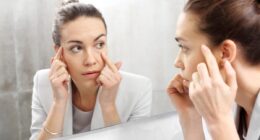If you prioritize your oral health, you’re certainly not alone. In fact, according to research, 92% of individuals in 2022 and 2023 think oral health plays a key role in their overall health. (And they’re correct!) The research also notes that the COVID-19 pandemic transformed the way many individuals approach holistic wellness. Considering the close connection between oral hygiene and total-body health, many people improved upon their oral wellness habits during this extended period of time at home. So it makes perfect sense that if you consider yourself one of these individuals, you’re always curious about the do’s and don’ts when it comes to oral care. That’s why we found out some things a dentist never does—and doesn’t want you to do, either.
Read on to see if you’re guilty of any of these poor oral care habits. And when you’re finished, be sure to check out The 6 Best & Worst Teeth Whitening Methods, According to a Dentist.
These are the things a dentist never does:
1. Brushing right after an acidic food or drink
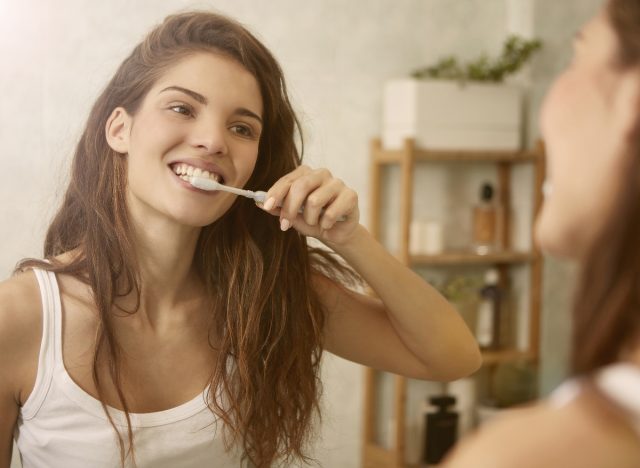

If you brush your teeth immediately after having an acidic food or drink, that’s a habit you’ll want to ditch ASAP. According to Dr. Michael J. Wei, DDS, FIADFE, Manhattan cosmetic dentist, doing so can weaken your tooth enamel.
2. Not brushing at all
This should go without saying, but brushing your teeth is necessary. According to the American Dental Association (ADA), you should brush your teeth two times a day for two minutes each, using a toothbrush with soft bristles. Not brushing your teeth enough—if at all—can result in gum disease and tooth decay, Dr. Wei warns.
3. Chewing hard objects
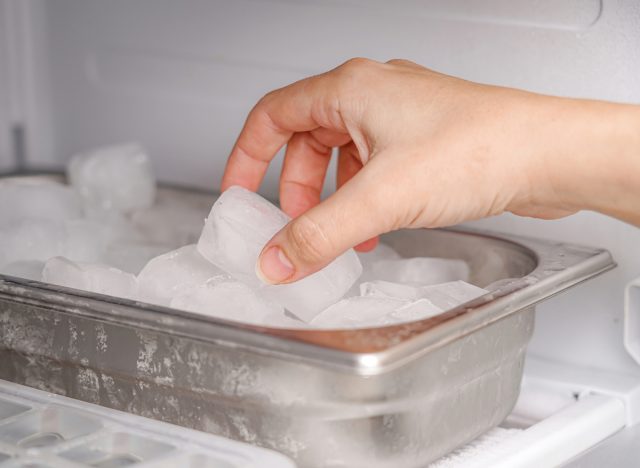

Mindlessly chewing on ice cubes or popcorn kernels may seem harmless, but these hard objects can wreak havoc on your teeth, Dr. Wei explains. According to the Cleveland Clinic, getting into a regular habit of chewing ice cubes—or even simply chomping on a cube using too much force one or two times—can chip crowns, restorations, and fillings. It can even fracture a tooth that already has small existing cracks in it.
4. Using a hard-bristled toothbrush
As stated before, using a toothbrush that has soft bristles is the name of the game. Dr. Wei cautions against reaching for a hard-bristled toothbrush at the drugstore, as it can wear away your tooth enamel.
READ RELATED: ‘You Must Get Tested for MS’: How Selma Blair Helped Christina Applegate Get a Diagnosis
5. Never flossing
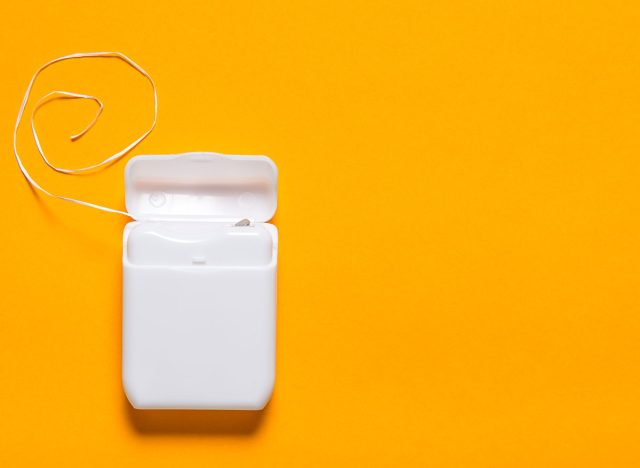

Brushing and flossing your teeth go hand in hand. Not incorporating the flossing aspect into your routine is a surefire way to produce plaque build-up, along with gingivitis, Dr. Wei warns.
According to the ADA, using dental floss helps clean out areas of your teeth that are challenging to reach, which in turn decreases your chances of experiencing tooth decay and gum disease. The ADA recommends flossing your teeth once daily.
6. Ignoring routine dental check-ups
Having a routine dental check-up on your calendar is crucial for your overall health and wellness—so don’t skip out on them! It’s a time when you can connect with your dentist and address any concerns you may have. Check-ups can also help detect and prevent potential issues, Dr. Wei says.
7. Using your teeth as a tool to open packages
We’ve likely all been guilty of this bad habit at one time or another. Using your teeth as an opening tool for packages and bottles is a major no-no. Dr. Wei says it could crack your teeth! So stick to scissors or package openers from here on out.
Practice these beneficial oral care habits, from Dr. Wei:
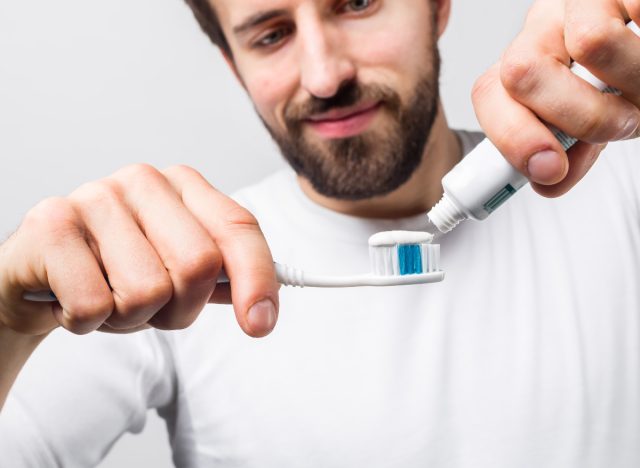

- Brush your teeth two times a day for two minutes each, using a fluoride toothpaste.
- Floss a minimum of once a day.
- Get your fill of H2O throughout the day.
- Stay away from sugary and acidic foods and beverages.
- Schedule a routine check-up and professional cleaning with your dentist every six months.
- Use a mouth rinse in your oral care routine to help decrease bacteria and plaque.
- If you play sports, wear a mouthguard during practice and games.
- Get a new toothbrush every three months.
- Avoid smoking and using smokeless tobacco products.
Alexa Mellardo






